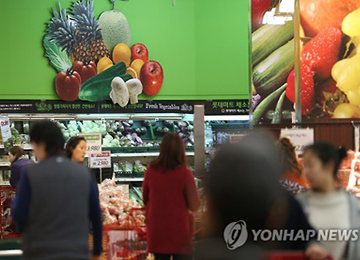Household consumption remains sluggish in South Korea.
According to Statistics Korea on Friday, South Korean households’ monthly average earnings in the second quarter grew zero-point-eight percent year on year which is approximately four-point-three million won. But their monthly average spending remained unchanged at some three-point-28 million won compared to the same period last year.
The average propensity to consume, or the ratio of a household’s spending to its disposable income, reached a new low of 70-point-nine percent. The figure means that a household spends 709-thousand won when its disposable income is one million won.
By contrast, the surplus rate rose zero-point-seven percent to an all-time high of 29-point one percent. As a result, households posted a surplus of more than one-point-02 million won in the second quarter, a three-point-six percent rise from the same period last year.
South Korean families were found to have considerably cut back on their expenditure on groceries, home supplies and housing costs. But their spending on foods, lodging, health care and transportation jumped with a growth in medical costs and car purchases.
The statistics indicate that South Koreans are concerned about an uncertain future and unwilling to spend money, leading to a surplus in household economy during an economic recession.


